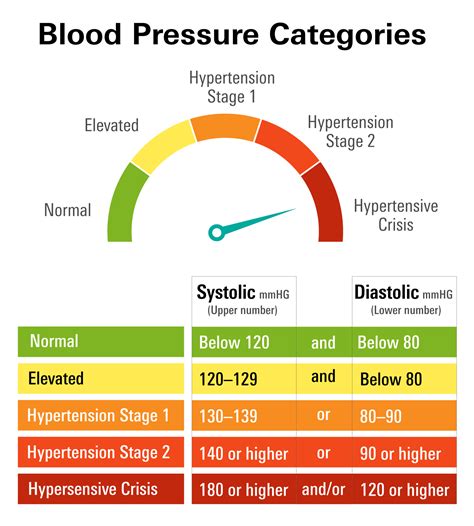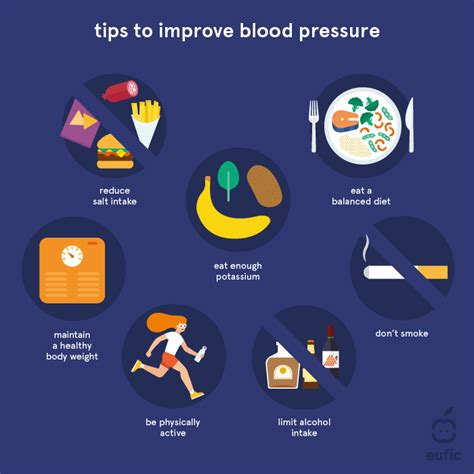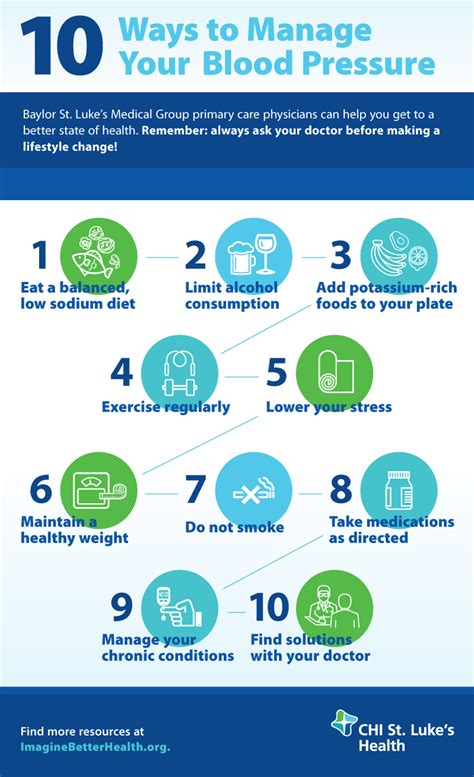Intro
Discover 5 ways to maintain good blood pressure, including healthy habits, exercise, and diet, to reduce hypertension and promote cardiovascular health, lowering risk of heart disease.
Maintaining good blood pressure is crucial for overall health and well-being. High blood pressure, also known as hypertension, can lead to serious health complications such as heart disease, stroke, and kidney damage. On the other hand, low blood pressure can cause dizziness, fainting, and inadequate blood flow to vital organs. Therefore, it is essential to understand the importance of maintaining good blood pressure and the ways to achieve it.
Good blood pressure is not just a matter of luck; it is a result of a combination of healthy lifestyle choices and habits. A well-balanced diet, regular physical activity, stress management, and adequate sleep are some of the key factors that contribute to maintaining good blood pressure. By incorporating these habits into daily life, individuals can significantly reduce the risk of developing hypertension and other related health problems.
In addition to these lifestyle changes, there are several other ways to maintain good blood pressure. Monitoring blood pressure regularly, managing stress, and avoiding certain foods and substances that can raise blood pressure are some of the additional strategies that can help individuals maintain good blood pressure. Furthermore, staying informed about the latest research and developments in the field of blood pressure management can also help individuals make informed decisions about their health.
Understanding Blood Pressure

Factors That Affect Blood Pressure
Several factors can affect blood pressure, including age, genetics, diet, physical activity level, stress, and certain medical conditions. For example, as people age, their blood pressure tends to rise, and individuals with a family history of hypertension are more likely to develop high blood pressure. A diet high in sodium, saturated fat, and cholesterol can also increase blood pressure, while regular physical activity can help lower it.Maintaining Good Blood Pressure

Benefits of Good Blood Pressure
Maintaining good blood pressure has numerous benefits, including reducing the risk of heart disease, stroke, and kidney damage. Good blood pressure can also improve overall health and well-being, increase energy levels, and enhance cognitive function. Additionally, maintaining good blood pressure can help individuals feel more confident and empowered to take control of their health.Strategies for Maintaining Good Blood Pressure

Common Mistakes to Avoid
There are several common mistakes that individuals can make when trying to maintain good blood pressure. Some of these mistakes include: * Not monitoring blood pressure regularly * Not managing stress effectively * Consuming too much sodium, saturated fat, and cholesterol * Not getting enough physical activity * Not getting enough sleepConclusion and Next Steps

The next steps for individuals who want to maintain good blood pressure include:
- Consulting with a healthcare provider to develop a personalized plan
- Making healthy lifestyle changes, such as eating a well-balanced diet and engaging in regular physical activity
- Monitoring blood pressure regularly to track changes and identify potential problems
- Staying informed about the latest research and developments in the field of blood pressure management
Final Thoughts

We invite readers to share their thoughts and experiences on maintaining good blood pressure in the comments section below. Additionally, we encourage readers to share this article with others who may benefit from the information and strategies presented.
What is considered good blood pressure?
+A normal blood pressure reading is typically around 120/80 mmHg, with the top number representing systolic pressure and the bottom number representing diastolic pressure.
How can I maintain good blood pressure?
+Maintaining good blood pressure requires a combination of healthy lifestyle choices and habits, including eating a well-balanced diet, engaging in regular physical activity, managing stress, and getting adequate sleep.
What are the benefits of good blood pressure?
+Maintaining good blood pressure has numerous benefits, including reducing the risk of heart disease, stroke, and kidney damage, improving overall health and well-being, increasing energy levels, and enhancing cognitive function.
